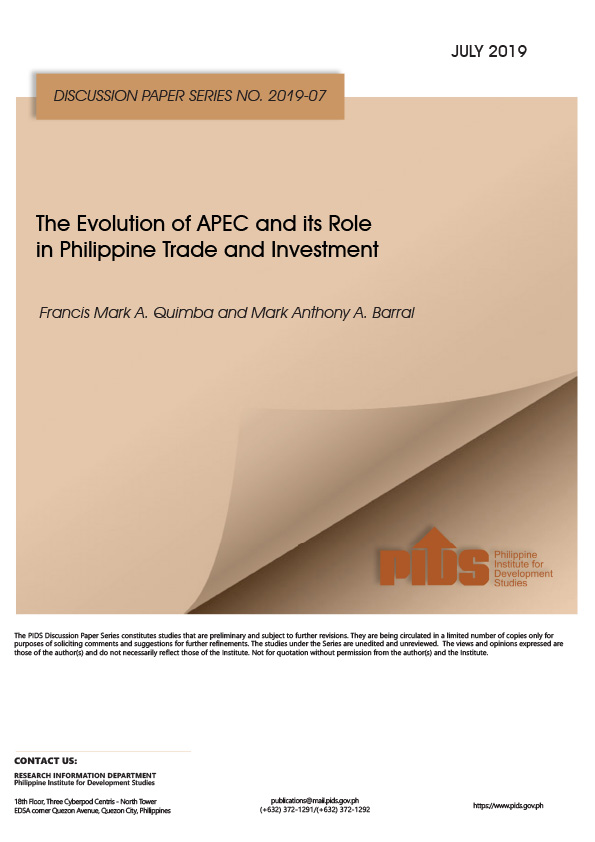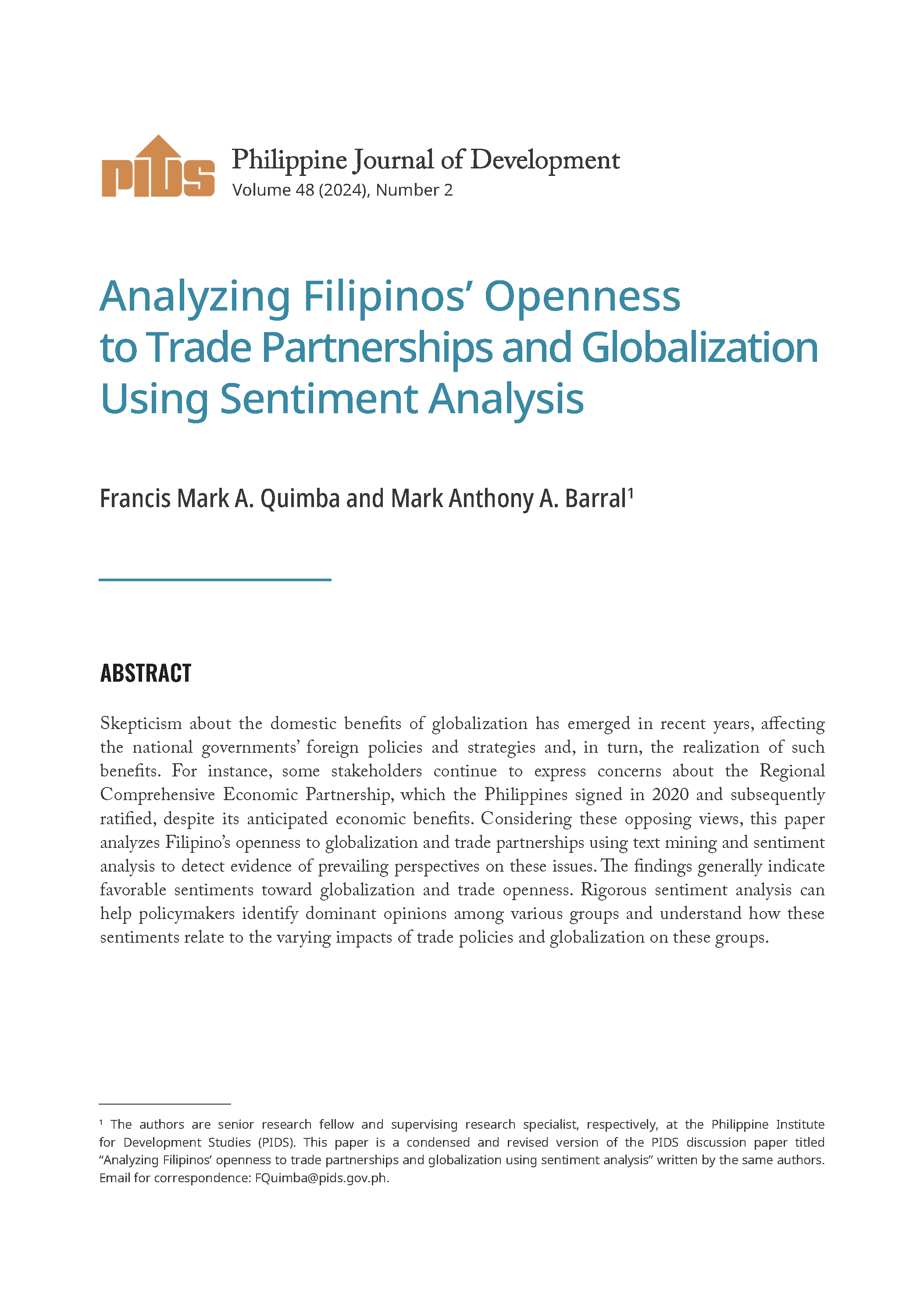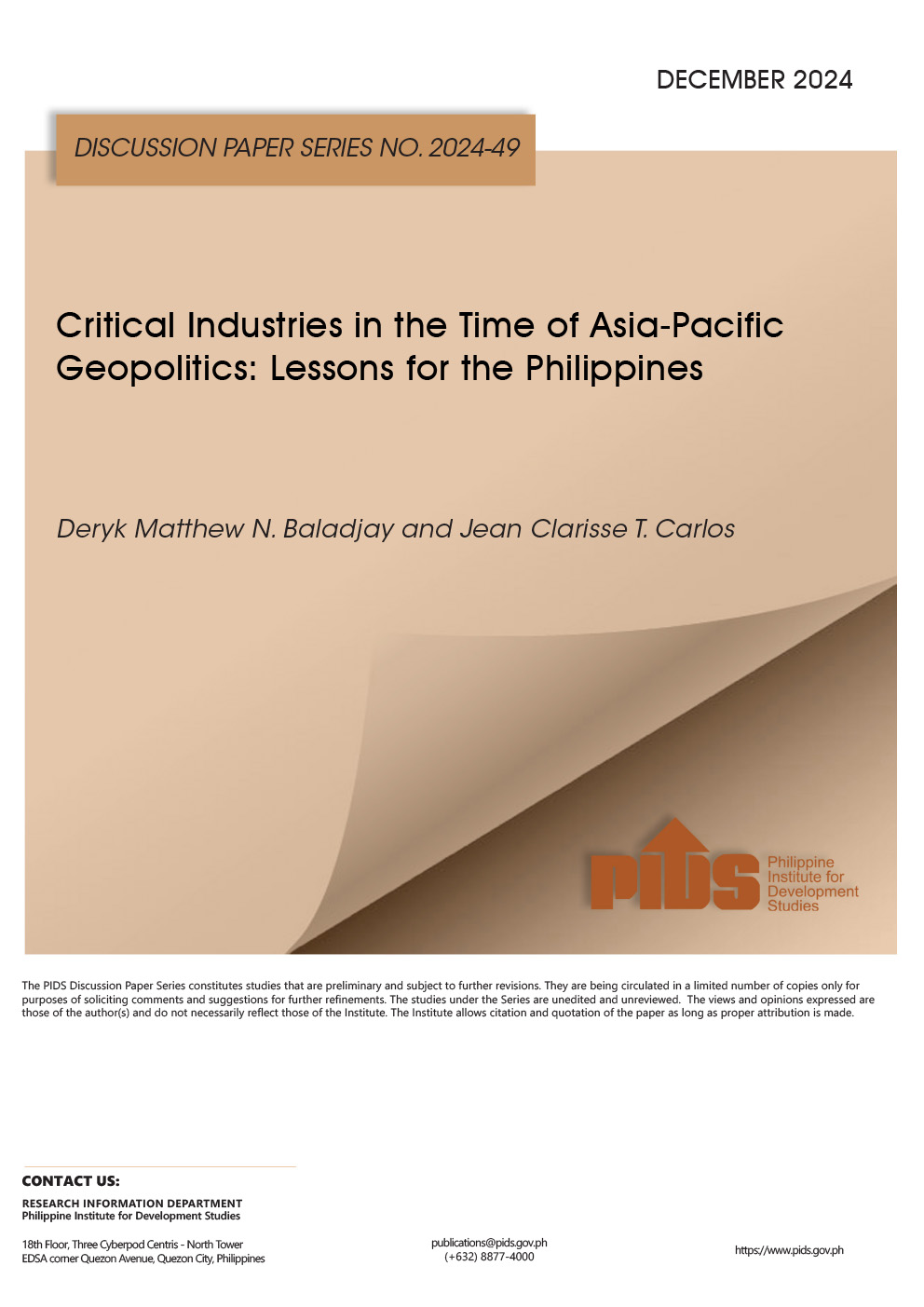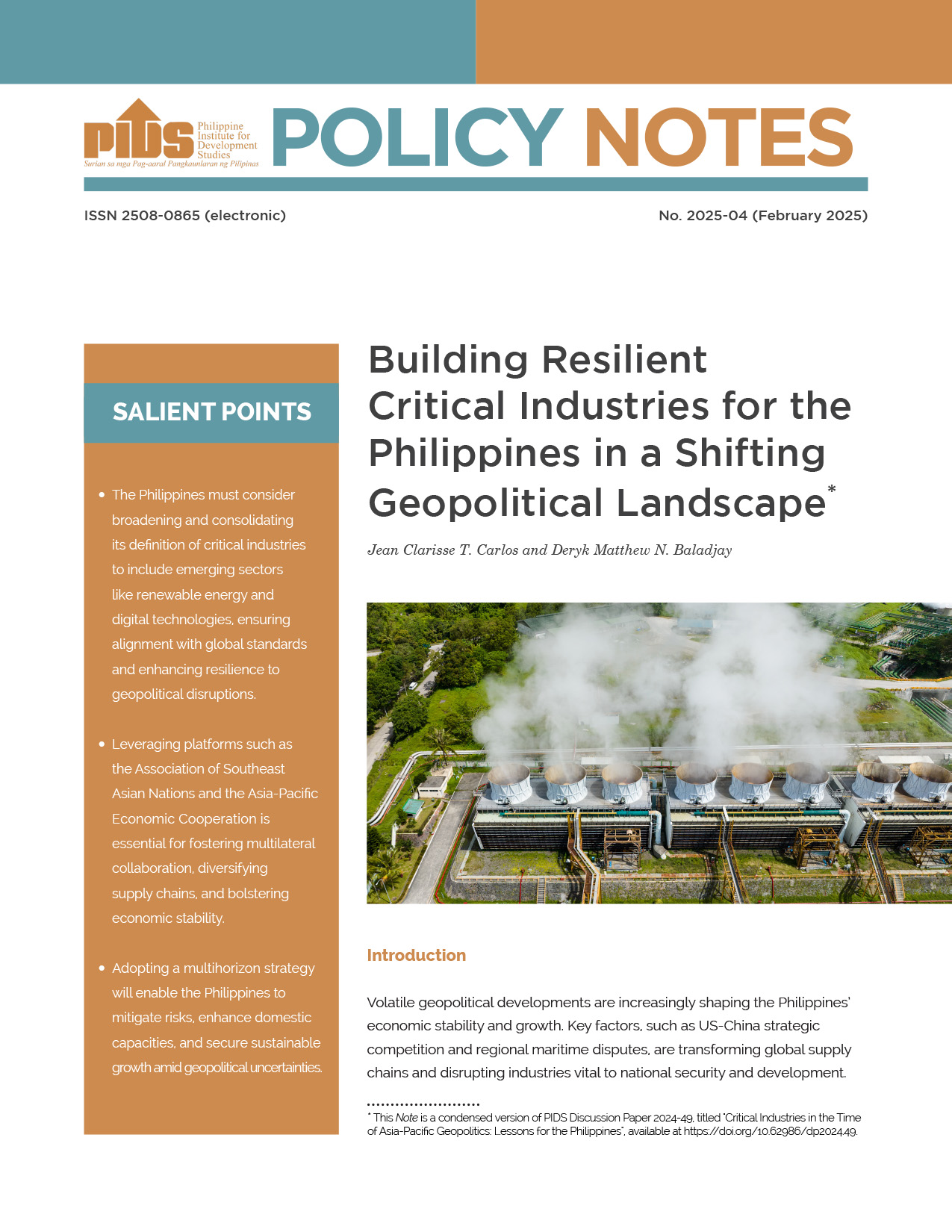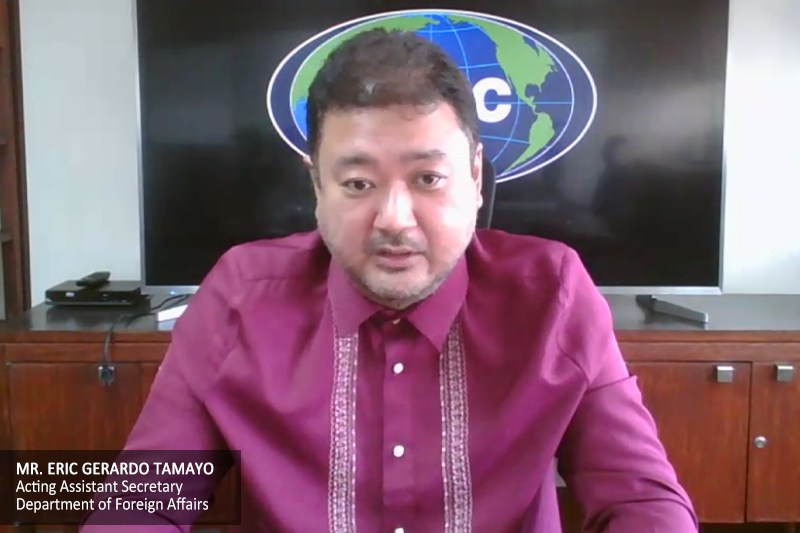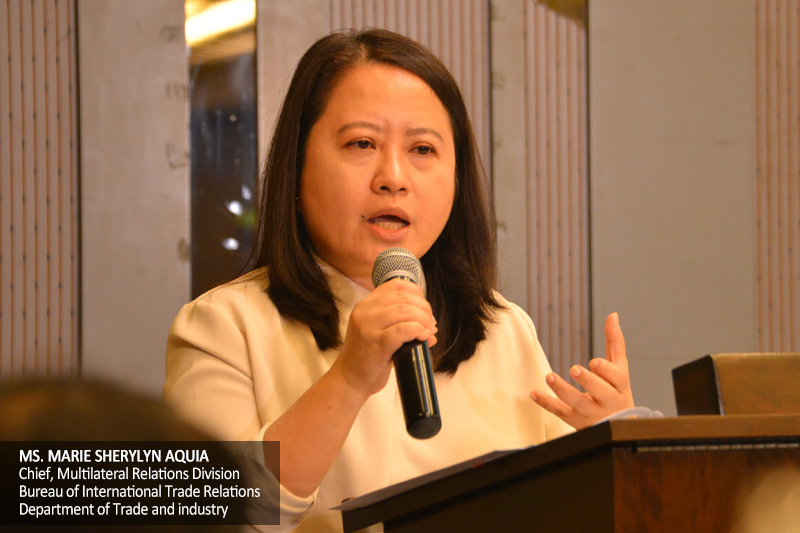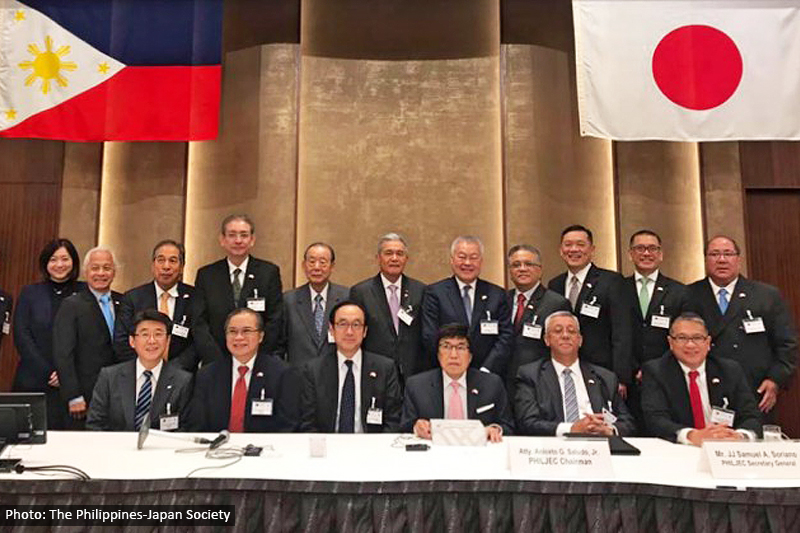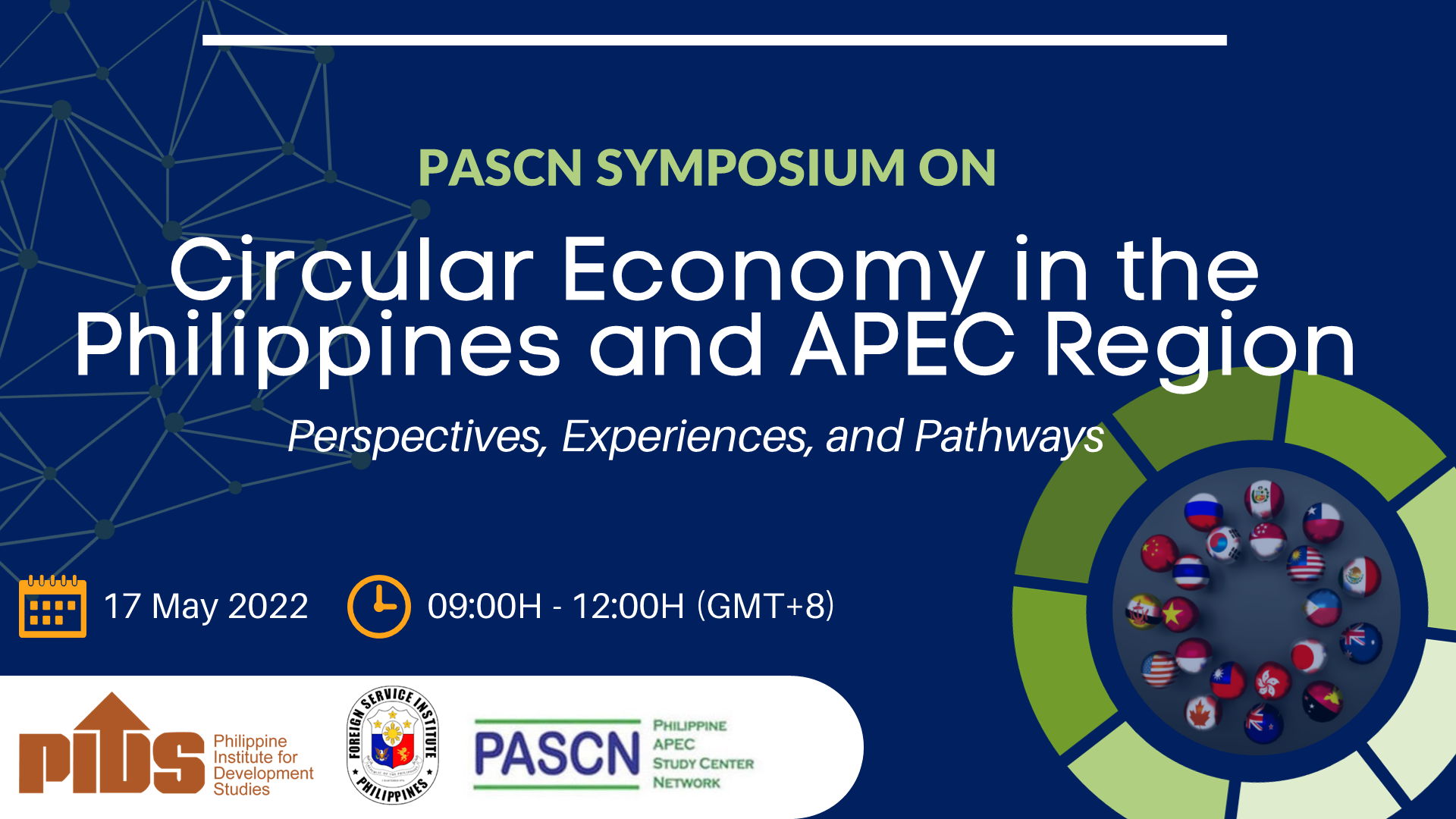This paper presents how the Asia-Pacific Economic Cooperation (APEC) has evolved as an institution, the changes it has undergone, and the challenges it has faced for the past decades. More importantly, this paper tries to enumerate the roles of APEC in positioning the Philippines in the global economy. Anchored on the desire to promote economic growth, foster and strengthen trade, and improve the living standards in the region, APEC initiated programs focused on trade and investment liberalization, trade facilitation, and economic and technical cooperation. These initiatives help the Philippines stimulate and improve the competitiveness of its domestic producers and sectors. The economy must utilize these initiatives, backed with the upgrading of domestic facilities to meet global standards and the aligning of domestic regulations. These address behind-the-border barriers that limit the flow of goods and services and expand the coverage of businesses to overseas markets. Trade agreements in APEC also help firms gain access to cheaper inputs and more advanced technologies, which foster competition and increased productivity and growth.
Citations
This publication has been cited 1 time
- Ordinario, Cai. 2019. ‘PHL must hasten efforts to hit Apec trade goals’. BusinessMirror.

